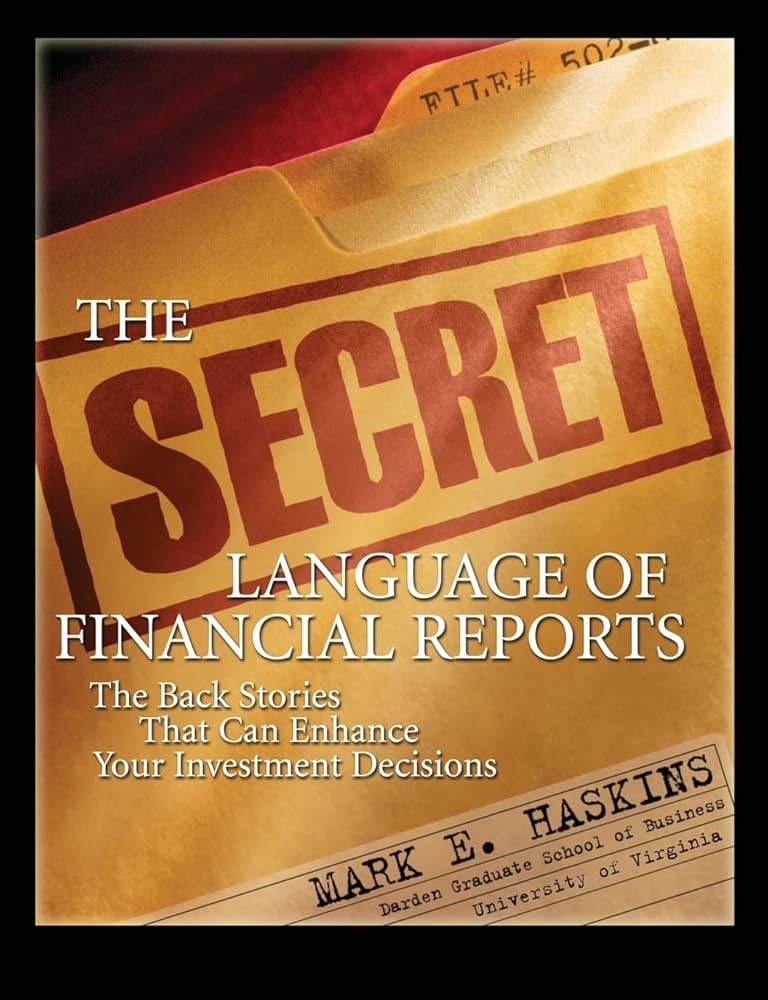9 Best Investment Books to Enhance Your Financial Knowledge and Strategy
Investing can seem daunting, but the right knowledge can turn it into a rewarding endeavor. Whether you’re just starting out or looking to refine your strategies, the best investment books offer invaluable insights and practical advice. These books, written by financial experts and successful investors, distill complex concepts into manageable, actionable steps.
In this article, you’ll discover nine must-read investment books that can help you navigate the financial markets with confidence. From timeless classics to modern masterpieces, these reads cover everything from fundamental analysis to behavioral finance. Dive in and equip yourself with the wisdom and tools needed to make informed investment decisions.
1. The Intelligent Investor by Benjamin Graham
“The Intelligent Investor” by Benjamin Graham is a timeless classic in the world of finance. Renowned for its comprehensive approach to investing, it remains one of the most recommended books for both novice and seasoned investors alike.
Understanding Value Investing
Graham’s book introduces you to the concept of value investing, which is the practice of purchasing stocks that appear underpriced by some form of fundamental analysis. He emphasizes the importance of focusing on intrinsic value, which means assessing a stock’s true worth based on its fundamentals such as earnings, dividends, and growth potential. By concentrating on companies that are undervalued, you stand a better chance of achieving long-term returns. Graham introduced the concept of “margin of safety,” which suggests investing in securities priced well below their intrinsic value to minimize risks.
Key Takeaways for Beginners
Graham’s principles offer a strong foundation for beginners in the stock market. He advises avoiding speculative investments and focusing instead on long-term strategies. One of his crucial tips is to perform thorough research before making any investment decisions. He also outlines the importance of diversification to spread risk and safeguard your portfolio against market volatility. Graham’s approach teaches patience, discipline, and commitment, equipping new investors with the mindset needed to navigate the complexities of the financial markets with confidence.
2. Common Stocks and Uncommon Profits by Philip Fisher
Philip Fisher’s “Common Stocks and Uncommon Profits” is a groundbreaking book that delves into growth investing. Fisher’s strategies have influenced many renowned investors, including Warren Buffett.
Exploring the Concept of Growth Investing
Growth investing focuses on selecting companies that show potential for above-average growth. Fisher’s book outlines his approach to finding these companies by examining their management, products, and financial health. He emphasizes understanding a company’s strengths, competitive advantages, and market position. By prioritizing quality, Fisher shows how identifying well-managed companies can lead to significant investment returns.
Impactful Investing Principles from the Book
Fisher introduces several investing principles that are pivotal for any investor. He talks about the importance of thorough research and the value of long-term holdings. His “Scuttlebutt” technique, which involves gathering information from various sources like suppliers and customers, helps investors gain a comprehensive view of a company. Fisher also stresses focusing on a company’s innovation and its ability to adapt to changing markets. These principles remain relevant and serve as a guide to making informed and profitable investment decisions.
3. A Random Walk Down Wall Street by Burton Malkiel
This classic book demystifies the complexities of financial markets and introduces readers to the efficient market hypothesis. Malkiel’s insights are both practical and grounded in academic research.
The Efficient Market Hypothesis
Understand the idea that stock prices reflect all available information. Malkiel explains how this hypothesis suggests you can’t consistently outperform the market through expert stock selection or market timing. Recognize the futility of trying to beat market averages, focusing instead on long-term investment strategies.
Practical Investment Strategies
Explore actionable advice for building a diversified portfolio. Malkiel emphasizes the importance of low-cost index funds, offering an easy and effective way to match market performance. Gain insights into asset allocation, dollar-cost averaging, and the benefits of compounding. Implement these strategies to simplify your investment journey and improve your potential returns.
4. The Little Book of Common Sense Investing by John C. Bogle
The Little Book of Common Sense Investing distills the wisdom of its author, John C. Bogle, the founder of Vanguard Group. It offers profound insights into the benefits of index investing.
The Power of Index Funds
Understand how index funds provide a simple yet effective way to maximize returns. Bogle argues that most actively managed funds underperform compared to the market. Index funds, designed to mirror the performance of a specific market index, offer lower costs and minimized risks. By automatically spreading your investment across a wide array of stocks, you achieve diversification effortlessly.
Investment Advice for Long-term Growth
Focus on long-term strategies to grow your wealth. Bogle emphasizes the importance of patience and consistency. He recommends low-cost index funds as the cornerstone of your portfolio. Avoid short-term trading and market timing; instead, let the power of compounding work for you over time. By maintaining a disciplined approach and staying the course through market fluctuations, you can achieve sustainable growth.
5. One Up On Wall Street by Peter Lynch
Peter Lynch’s “One Up On Wall Street” is an essential read for both novice and seasoned investors. Lynch, a former fund manager at Fidelity Magellan Fund, provides a unique approach to stock market investing.
How to Use What You Already Know to Invest
Lynch emphasizes leveraging your existing knowledge to spot investment opportunities. He believes that everyday observations can reveal profitable insights overlooked by professional analysts. If you notice a new product or service gaining popularity in your community, it could indicate a potential investment opportunity. For example, consider how successful you thought Uber or Instagram would be before they became public companies.
Lynch’s Philosophy on ‘Invest in What You Know’
Lynch’s core philosophy is to invest in what you know. He suggests that having a deep understanding of the industries and companies you invest in gives you a significant advantage. If you have expertise in a particular field, use it to identify promising stocks others might miss. This approach simplifies the complex world of investing by focusing on familiar territory, increasing your chances of making sound investment decisions.
6. Irrational Exuberance by Robert J. Shiller
“Irrational Exuberance” offers invaluable insights into market volatility and the psychological factors influencing investors. Robert J. Shiller’s analysis is both enlightening and practical.
Understanding Market Volatility
Shiller details how markets can sway dramatically due to various economic factors. He examines historical data to show patterns of booms and busts, highlighting the importance of recognizing and understanding these fluctuations. By reading this, you’ll gain a deeper comprehension of how different factors contribute to market volatility.
Psychological Influences on Investing
Shiller delves into how emotions and psychological biases can drive market behaviors. He explains how irrational decision-making often leads to market bubbles and crashes. You’ll learn to identify these emotional influences in yourself and others, making you a more rational and effective investor.
7. Security Analysis by Benjamin Graham and David Dodd
The Bible of Value Investing
Known as the “Bible of Value Investing,” Security Analysis lays the foundation for value investing principles. You’ll explore various ways to scrutinize financial statements, assess intrinsic value, and understand the importance of a margin of safety. This book emphasizes investing in undervalued companies with solid fundamentals, making it essential reading for any serious investor.
Advanced Concepts in Investment
Security Analysis dives deep into advanced investment concepts, offering insights into different analysis techniques, such as qualitative and quantitative analysis. You’ll learn about the intricacies of bond investing, preferred stocks, and financial instruments that influence market dynamics. Mastering these advanced topics will enhance your ability to make informed investment decisions and manage risk effectively.
8. The Essays of Warren Buffett by Lawrence Cunningham
Wisdom from the Greatest Investor of Our Time
Buffett’s wisdom is unmatched, and this book compiles his annual letters to Berkshire Hathaway shareholders. You get insights straight from Buffett on topics like value investing, corporate governance, and financial management. Reading his essays gives you unparalleled access to his investment philosophies.
Lessons on Corporate America and Investment Strategy
Buffett’s letters also delve into the intricacies of corporate America. You learn about mergers, acquisitions, and the ethics of business operations. His candid discussions offer lessons on long-term investment strategies and building sustainable companies. By understanding his approach, you can develop a disciplined investment mindset.
9. Rich Dad Poor Dad by Robert T. Kiyosaki
“Rich Dad Poor Dad” by Robert T. Kiyosaki offers a unique perspective on financial literacy and wealth-building strategies through storytelling. Kiyosaki contrasts his two fathers’ financial philosophies, providing valuable lessons for readers.
The Importance of Financial Education
Understanding financial education is crucial for personal financial growth. Kiyosaki emphasizes that traditional education often overlooks financial literacy, leaving many without the tools to manage money effectively. He argues that the key to financial success is learning how money works, investing in financial education, and applying that knowledge to make informed financial decisions. For example, he demonstrates how mastering the basics, such as understanding income statements and balance sheets, can empower you to build and manage wealth strategically.
Investing in Assets vs. Liabilities
Identifying the difference between assets and liabilities is fundamental for financial independence. Kiyosaki clearly distinguishes assets as things that put money in your pocket and liabilities as things that take money out. He advises investors to focus on acquiring income-generating assets like real estate, stocks, and businesses, rather than accumulating liabilities like cars or expensive gadgets. This approach, according to Kiyosaki, leads to financial stability and growth, as your money works for you, not against you. By prioritizing assets, you build a portfolio that contributes to long-term wealth.
Conclusion
Exploring these nine investment books can significantly enhance your understanding of the financial world. Each book offers unique insights, from mastering fundamental analysis to grasping the psychological aspects of market behavior. By investing time in these reads, you’ll gain valuable knowledge that can guide your financial decisions and strategies. Whether you’re a novice or an experienced investor, these books provide timeless wisdom that can help you navigate the complexities of investing with confidence. Happy reading and successful investing!






